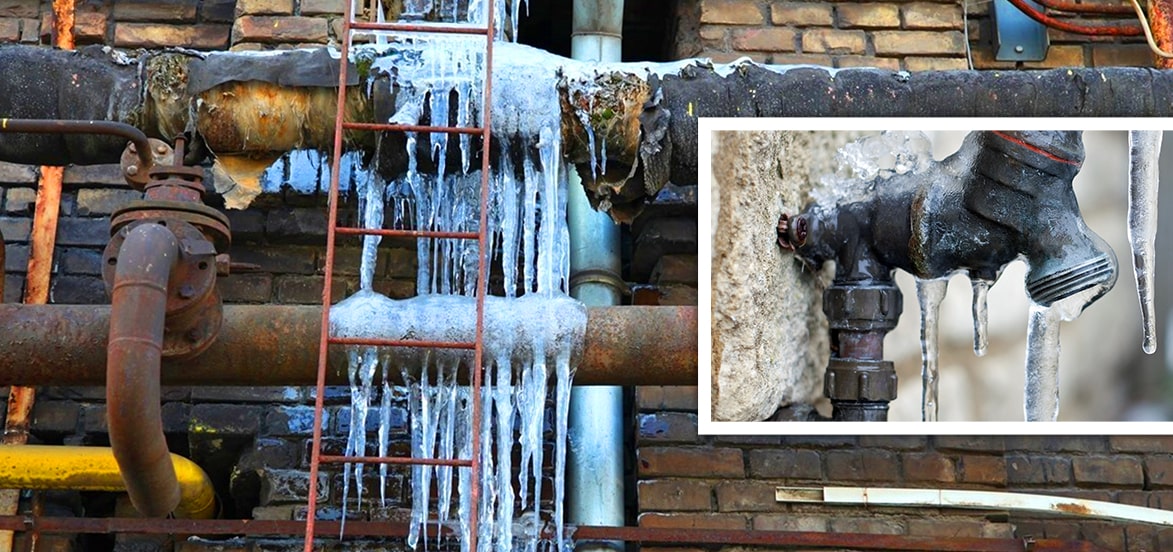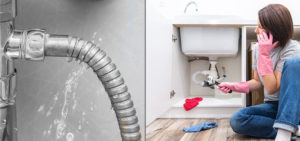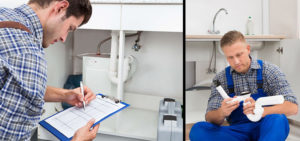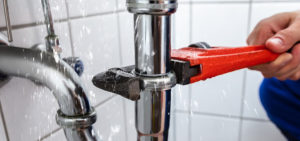What Causes Frozen Water Pipes to Burst in the Winter? How do you take precautions for prevention?
Copper pipes were used to construct most homes in San Diego. Due to their long lifespan, these pipes are preferred by plumbers and homeowners alike. However, if your house was constructed before 1970, the lines are likely made of galvanized steel, which is notorious for springing leaks.
Repiping is the best way to avoid plumbing disasters from happening when you have aging and deteriorating pipes in your home.
You might need to spend money on repiping for a variety of reasons. An outdated network of water and sewer pipes is vulnerable to issues since many pipes might start to leak at any time. Repiping, pipe lining, or pipe replacements are effective ways to address problems caused by old pipes.
Not taking care of pipe issues can cause severe problems within your plumbing systems, leading to significant water damage and repair costs. Contact All Star Plumbing & Restoration if you are looking to repipe in San Diego.
The first thing you should do if a pipe leaks is to stop the water supply to that line. The water valve must be located directly at the pipe’s source, underneath a sink in the kitchen or bathroom.
Many people panic and leave the water on, which results in flooded bathrooms and kitchens. Finding the leak’s origin is necessary before you can begin your leaking pipe repair.
Another common problem that demands repiping services is when frozen pipes burst. How long does it take for pipes to freeze? Pipes could freeze overnight or in six hours; it depends on the temperatures and weather conditions to which the pipes are exposed. We have provided some insights into handling the problems.
How Long Does It Take For Pipes To Freeze? How To Unfreeze Pipes?
Before winters, it’s crucial to protect the pipes since frozen pipes can cause significant damage. In the vast majority of cases, pipelines rupture when the water inside freezes. Naturally, such an incident will leave you with a messy cleanup to do in addition to broken pipes that need to be fixed, costing you much more money than simple protective measures.
Your pipes typically need between four and six hours to freeze and rupture, which is a very rough estimate. The temperature that causes pipes to freeze and burst cannot be pre decided. If your pipes are in a condition that cold temperatures could freeze the water inside the pipes for a long time, you might anticipate a pipe burst.
When there is a pipe burst, you should immediately turn off the main water supply. Turning off the water will help stop more damage. Then get in touch with a trustworthy water damage restoration business such as All Star Plumbing & Restoration.
When pipes are enclosed within some structure, the issue of what to do about frozen pipes becomes more challenging. How to access the lines and how to fix frozen pipes? With a switch, an infrared bulb, or as a last resort, piercing into your walls, you might be able to unfreeze enclosed pipes.
Would you be interested in learning more about defrosting frozen pipes?
Many homeowners are aware of the fact that a frozen pipe can be a serious issue. Unfortunately, most of them are not aware of how to prevent pipes from freezing.
Frozen pipes restrict your running water and adversely affect your drinking water. A lot of people use a hair dryer to prevent pipes from freezing. Frozen pipes can be defrosted with the aid of direct heat. A warming lamp or portable space heaters are other options. Using hot water-soaked towels and wrapping them around the pipe is another potential technique, albeit not a great one.
How To Keep Pipes From Freezing
After dealing with frozen or burst pipes, you’ll never want to undergo the procedure again.
Do you want to know how to prevent pipes from freezing?
- Always keep the thermostat in your house set to at least 60 degrees.
- Ensure you winterize your home to keep heat in and cold air out.
- To circulate warm air around the pipes, periodically open kitchen cabinet doors.
- Before temperatures freeze, disconnect and drain outside faucets.
- Allow faucets to drip slowly on days with subzero temperatures to keep the water flowing.
- It is recommended to insulate any outdoor pipes and hose spigots; you may do this by purchasing an insulation kit from your neighborhood hardware shop.
- Kitchen pipes that run up to exterior walls are frequently susceptible to freezing and typically have little to no insulation. Keep the cabinets underneath sinks in the kitchen and bathroom open to let warm air flow through and prevent freezing. The cold can also harm pipes in unheated spaces like basements, attics, and places next to garages.
- Make sure to insulate these locations with extra care.
- Heat tape is an excellent insulation material for water pipes. These “pipe sleeves” might be as easy as wrapping pipes in newspaper to insulate and keep them warm.
How To Thaw Frozen Pipes Underground?
The water in underground water pipes freezes when wintertime arrives. However, the underground temperature is always slightly higher than the ambient temperature. The water in the underground water pipes, therefore, exceeds the lowest temperature and begins to freeze in the line while the chilly blaze makes the entire surroundings exceedingly cold.
Put a submersing water pump into about 20 lit. of water in a bucket.
- Attach 1/4 inch plastic ice maker tube with the pump that properly fits it.
- Connect a flexible PEX tube of 4ft. with the intended pipe.
- Keep feeding the ice maker tube into the PEX tube up to the blockage point.
- Plug in the pump within a GFCI outlet to pump a steady stream of water directly to the frozen area.
- As the water hits the ice, it trickles down the pipe and into your five-gallon bucket.
How To Fix Frozen Pipes?
Frozen pipes can be a costly issue. When exposed to sub-freezing conditions, a person’s home’s pipes may become clogged with ice. Even concealed pipes in crawl tunnels and uninsulated exterior walls are prone to freezing. Even in homes with good insulation, pipes may face ice buildup when it is sufficiently cold outside.
You neglected to let your faucet drip when it was cold outside or left the garage door open. Your thermostat may be broken, and as a result, your pipes are currently frozen.
- Homeowners facing frigid temperatures as winter arrives run the risk of having their pipes freeze.
- A costly issue might result from frozen pipes. Ice can build up in the lines all over a person’s home when exposed to freezing conditions.
- Even concealed pipes like crawl tunnels and uninsulated exterior walls can freeze.
- Even in homes with excellent insulation, pipes can experience ice buildup when the temperature is low enough.
- You neglected to let your faucet drip or left the garage door open because it is cold outdoors. Maybe you have some issue with your thermostat. Did you forget to adjust it? It can result in a frozen pipe.
- Never attempt to thaw your pipes using an open flame or torch.
No matter how carefully you take care of the fixtures and piping system, pipe leaks can occur due to factors outside your knowledge and control. It is recommended that you get a plumbing inspection done once or twice a year to keep your plumbing in good conditions.
Why Choose All Star Plumbing & Restoration?
All Star Plumbing & Restoration offers a range of services for pipe repair and repiping in San Diego. If you are looking for an expert in repiping, find one quickly when you contact All Star Plumbing & Restoration. The company offers many services, such as water leak detection, water damage repair, air conditioning repair, and furnace repair.
Related Posts







